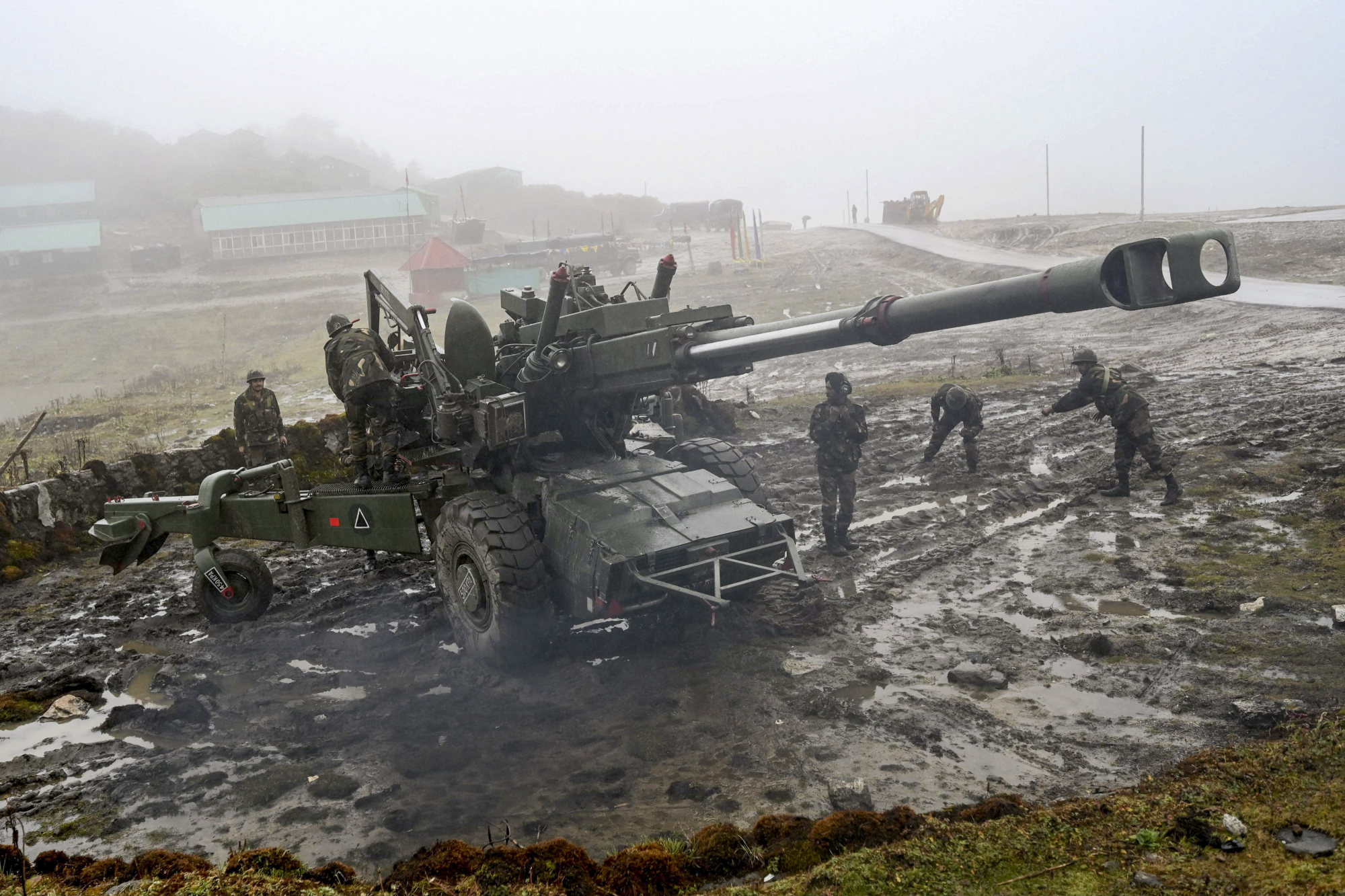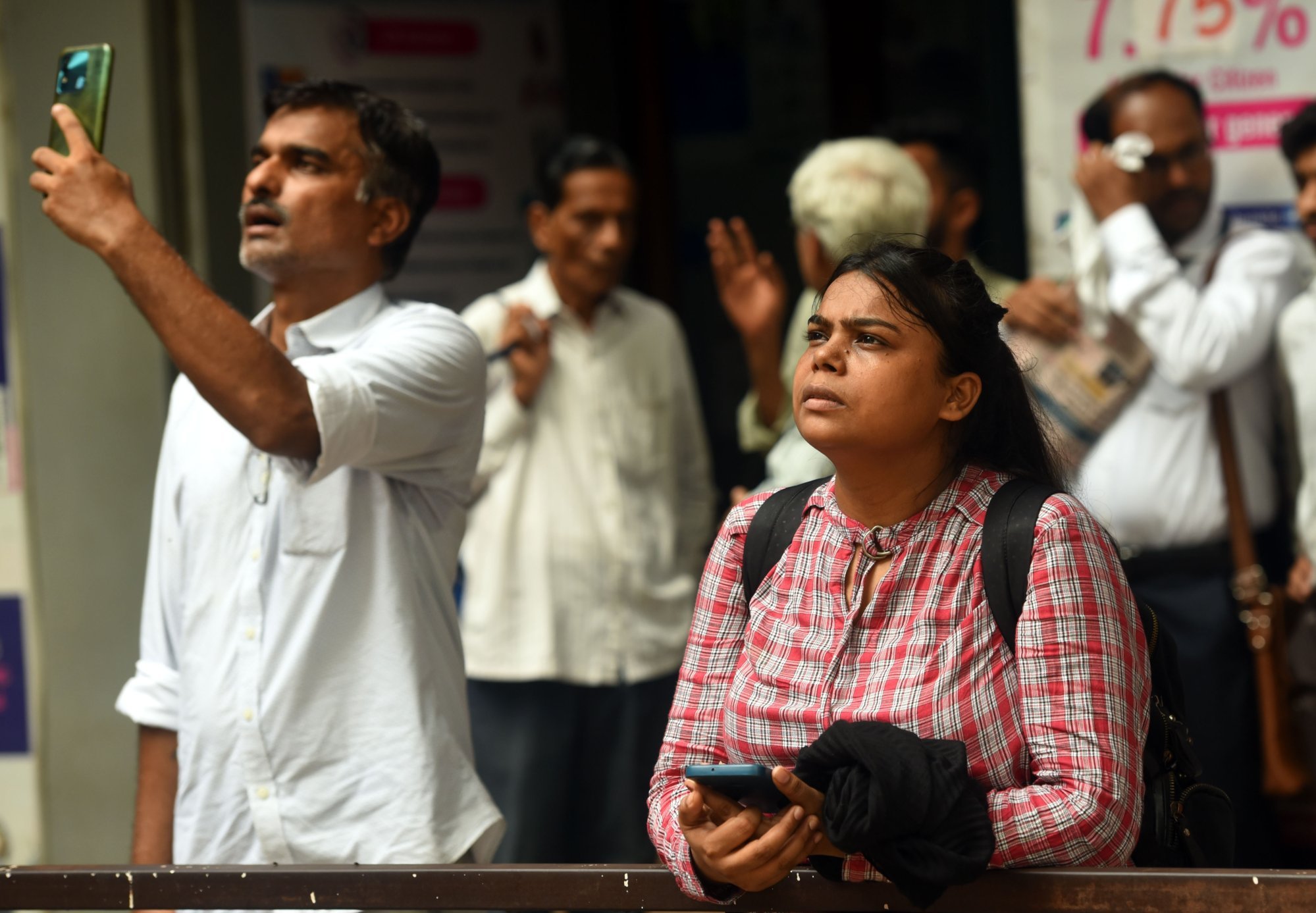India’s general election results on Tuesday delivered an unexpected twist in the ongoing tale of the country’s popular yet polarising Hindu nationalist leader, Narendra Modi, unveiling a reality quite distant from a widely anticipated landslide victory.
With his Bharatiya Janata Party-led coalition projected to narrowly secure the required majority to form a government, Modi, the twice-elected leader of the world’s largest democracy, appears poised to return as the country’s top elected official.
Questions swirl as to the implications of the poorer-than-expected performance, with many asking what a weaker Modi means for India’s evolving relationship with the US and for its uneasiness with China, whom America sees as posing a “pacing challenge”.
Do you have questions about the biggest topics and trends from around the world? Get the answers with SCMP Knowledge, our new platform of curated content with explainers, FAQs, analyses and infographics brought to you by our award-winning team.
Even if Modi’s actual clout is not necessarily diminished, the outcome represented “a setback to the massive expectations tied to his indomitable popularity on the ground and abroad”, according to Farwa Aamer of Asia Society, a New York think tank.
“India will continue to be seen as an important global player regardless, but we may just see a lot more focus on domestic issues and challenges, given the election results, at least for the initial months of the new government,” Aamer added.
During Modi’s tenure, US-India relations have transformed owing to shared security concerns over China’s ascent and a decades-long border dispute. Numerous bilateral summits have arisen, as have fortified joint-defence collaborations in the Indo-Pacific.
High-level initiatives like the ‘2+2 ministerial dialogues’ involving each country’s top defence and diplomatic officials have bolstered ties as well.
And throughout the headway, Modi has sought to position New Delhi as an appealing alternative amid Washington’s efforts to diversify supply chains away from Beijing’s sway.
At the same time, India has adeptly preserved its close diplomatic relations with Russia while managing to blunt US inclinations to raise cases of transnational repression and human-rights violations alleged under Modi’s leadership.
State Department spokesman Matthew Miller on Tuesday described US-India ties as a “great partnership both at the government level and at the people-to-people level”.
Asked about a third Modi term, Miller replied that the US looked forward to the final results and that it “fully” expected the good dealings to continue.
Aamer believed India’s relationship with the US was likely to stay on its current path, whether in their “manner of managing frictions or maintaining the trajectory of ongoing joint initiatives”.
“The US has so far managed its differences with India well, especially with regards to the India-Russia equation,” she said.
As for China, that was “more complicated” due to New Delhi and Beijing’s unresolved border dispute lying “at the heart of Sino-Indian relations”, Aamer added.
Both sides maintain a significant number of troops and advanced weaponry along the “Line of Actual Control” – the effective Himalayan border between the two countries.

The stalemate persists despite 21 rounds of talks and at least four rounds of disengagement. Tensions exploded in May 2020 following a violent clash that resulted in the deaths of more than 20 Indians and four Chinese soldiers.
During the election campaign, Modi spoke of tackling border issues soon to achieve normalised relations, stressing the importance of regional stability.
“It is my belief that we need to urgently address the prolonged situation on our borders so that the abnormality in our bilateral interactions can be put behind us,” he said in an interview in April.
That said, India has keenly pursued its status “as an alternative market to China”, noted Aamer of Asia Society, “now becoming an increasingly viable investment and manufacturing global and regional hub”.
Indeed, Modi has pledged to transform India into a global manufacturing hub. In a third term, he is expected to follow US President Joe Biden’s example by offering subsidies for Indian domestic production of semiconductors and electric vehicles.
Such developments, coupled with the BJP’s performance on Tuesday, have apparently left investors jittery. The country’s benchmark National Stock Exchange Nifty 50 plunged to its worst intraday level since March 2020 during the coronavirus pandemic.
Meanwhile, the rupee lost 0.5 per cent against the US dollar, its biggest slide in 16 months.
Jabin Jacob, a China expert at Shiv Nadar University in New Delhi, described India as a stable political system and said “one should not get carried away by short-term market sentiments”.
Its position on the global stage, Jacob added, was “not at all connected to the nature of the government in place in New Delhi”.
“It doesn’t take a decisive mandate to run effective foreign policy. Just good thinking, planning, human and material resources and a willingness to walk the talk”.

As for the prospect of India and China resolving their border issues during a third Modi term, Jacob believed no Indian government could do so because Beijing itself “does not wish to compromise”, independent of how power is wielded in New Delhi.
Not long after Modi spoke of breaking ground with Beijing, China’s state-run Global Times cited local experts in asserting that it was “imperative for India to uphold a strategic perspective” towards the bilateral relationship.
“The relationship between China and a number of countries, including US allies like Japan and Australia, is now improving,” Lin Minwang of Fudan University was quoted as saying.
“In light of this, India may question why there is no sign of easing and an improvement in China-India relations so far.”
Biden, for his part, hosted Chinese President Xi Jinping for a summit in San Francisco in November last year to restore high-level dialogue and stabilise US-China relations amid tensions in the South China Sea and the Taiwan Strait.
However, Modi and Xi have only met on the sidelines of the Brics summit – a group of leading emerging economies comprising Brazil, Russia, India, China, South Africa, Iran, Egypt, Ethiopia, and the United Arab Emirates – in August 2o23 in Johannesburg.
While both parties called for efforts to improve ties, each asserted that the one-on-one meeting was initiated at the other’s request.
Jacob of Shiv Nadar University said Chinese analysts pushing for amity should look deeply at their country’s positions “including its unwillingness to respect bilateral agreements and international law”.
India’s relationship with the US has been stronger than at any time in the past, Jacob added, saying “it will only get stronger”.
“The US understands India is useful precisely because it has reach and connections that the US does not. India might not go the distance the West wants it to go on Russia, but India is still critical and plain-spoken with the Russians.”
More from South China Morning Post:
- China’s new India envoy urges neighbours to ‘get along well’ amid talk of Xi-Modi meeting and border military build-up
- India election 2024: Modi touts roaring economy as he seeks re-election, but many people ‘really struggling’
- In India, Modi’s claim of ‘God bestowing him’ with ‘energy’ sparks ridicule from rivals, memes
- India-China trade just keeps growing – even if New Delhi would really rather it didn’t
- India election: political rivals’ barbs over ties to tycoons spotlight growing income inequality, rich-poor divide
For the latest news from the South China Morning Post download our mobile app. Copyright 2024.





